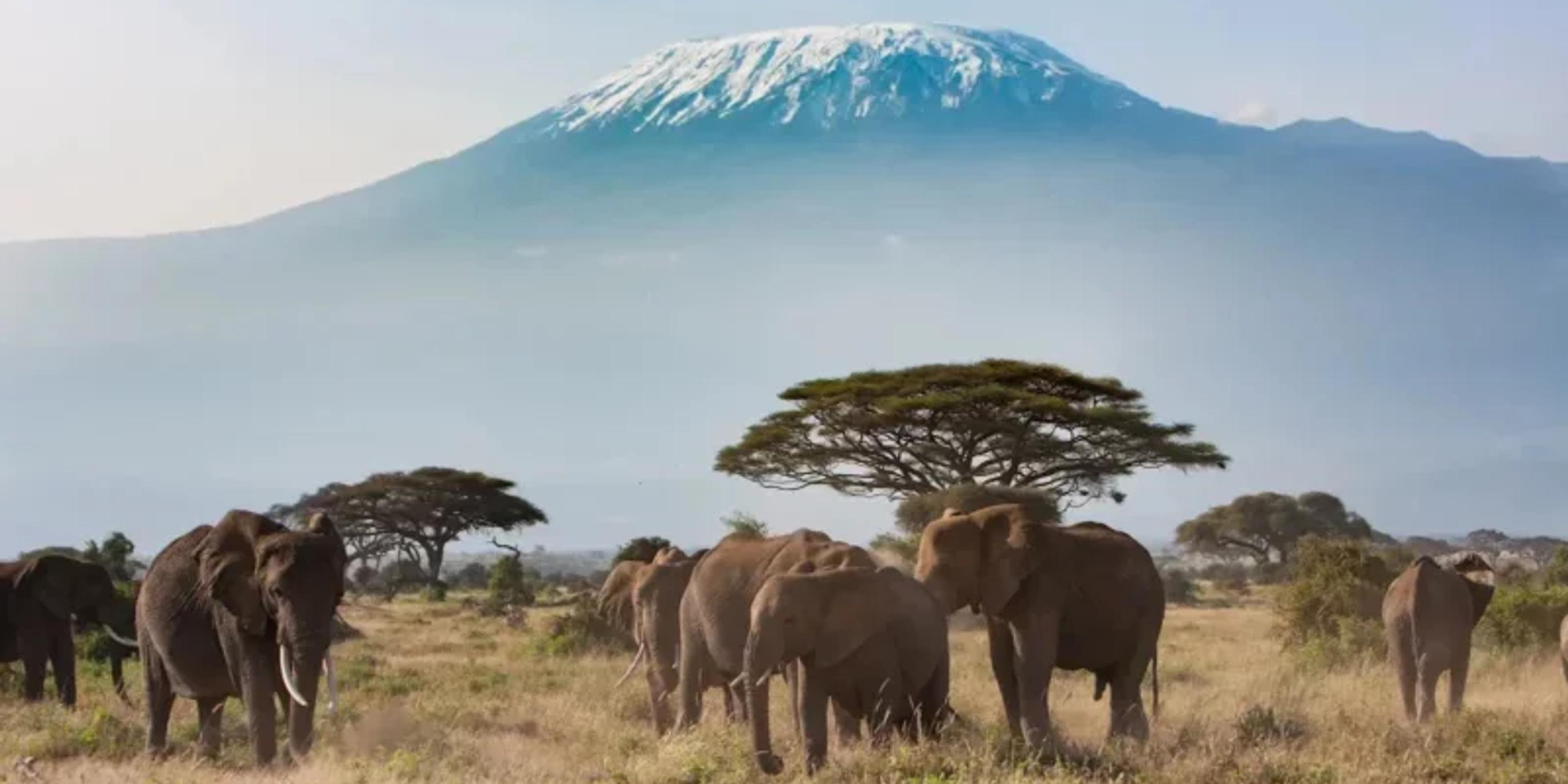
Is Mount Toubkal Harder than Kilimanjaro? A Climber’s Comparison
Is Mount Toubkal Harder than Kilimanjaro? What You Need to Know:
At 4,167m, Mount Toubkal is the highest point in the Atlas Mountains; it's also North Africa’s highest peak.
Kilimanjaro is Africa’s tallest mountain at 5,895m. Fun fact - it's also the highest free-standing mountain in the world. Kilimanjaro is a spectacular sight - it rises straight up from the African plains like a huge monolith.
Both summits will give you different climbing experiences. You'll face some steep slopes on Mount Toubkal while Kilimanjaro is all about the altitude and the length of the climb.
An ascent of Kilimanjaro is probably on more peoples' bucket lists, probably because it's better known. Mount Toubkal is less well-known, but it's a great introduction to climbing those big peaks.
If you've not climbed many mountains, Toubkal is probably the better choice for your first peak. It's not as high and it's easier going. Plus you'll get some stunning summit views!
Okay, neither Mount Toubkal or Kilimanjaro quite match up to Mount Everest standards, but they're still big mountains. So if it's epic adventure you're after, don't knock either.
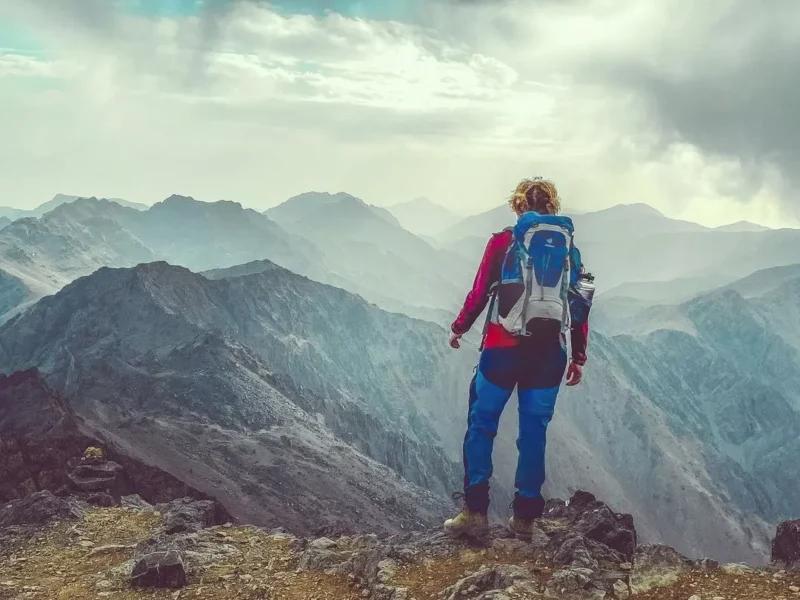
Climbing Kilimanjaro and Mount Toubkal: The Experience
While Mount Toubkal's summit isn't technical you do need to be physically fit and able to handle some steep slopes and uneven terrain. Kilimanjaro is much more physically demanding, as it's a bigger beast so you need a few days to reach the summit. Also the altitude will be more of a challenge. Both mountains need careful planning and preparation and demand respect. They both offer stunning scenery, the personal thrill of reaching the summit and a great trekking experience. Mountain treks like the Tour du Mont Blanc and Everest Base Camp are ideal preparation for a Mount Toubkal or Kilimanjaro summit attempt.
Physical Demands
Toubkal requires a good level of fitness, due to some steep climbs, scree and snow. You'll need to be even fitter to climb Kilimanjaro, due to a long summit day and enough altitude to make breathing difficult. You can climb Mount Toubkal in 4 days - 2 days travelling and 2 days trekking - which is handy as you can do it over a long weekend so you don't need to use much of that precious annual leave. Mount Kilimanjaro is a bigger peak so it takes longer to climb and acclimatise - you'll need to allow at least a week. Both mountains require a degree of mental toughness and the weather can change fast, so you'll need to be prepared.
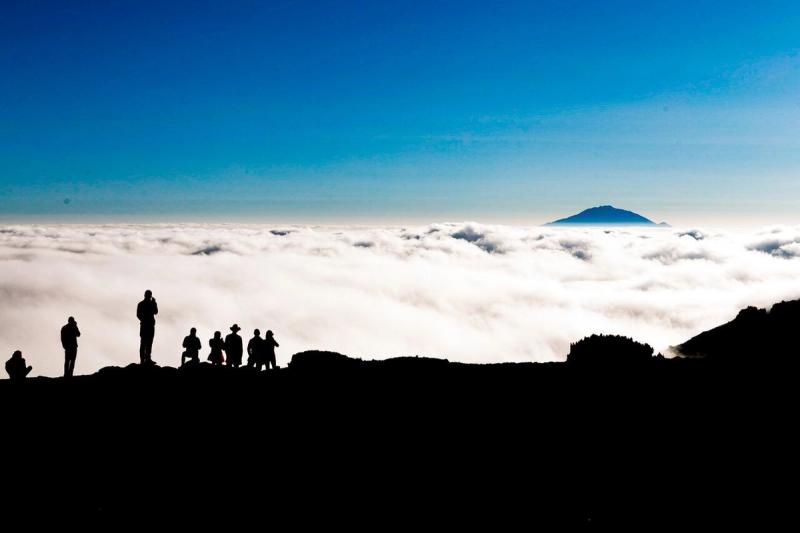
Is Altitude Sickness a Problem?
You're very unlikely to experience Mountain sickness on Mount Toubkal, so it won't be a problem. Kilimanjaro is a bigger mountain, so the high altitude can potentially cause problems. However you can reduce the chances of experiencing symptoms. Make sure you carry plenty of water and keep chugging it! Don't rush - it's not a race to the top. Just take things at your own pace, or 'pole pole' as they say on Kilimanjaro. Stay alert to the symptoms - these include breathlessness, difficulty sleeping and headaches.
Remember - if you travel with Call to Adventure, the guides are fully trained to spot any symptoms of altitude sickness and will have your back.
Route and Logistics
There are two routes up Mount Toubkal. The path from Imlil through the Mizane Valley is the easiest option so expect it to be crowded. If you want to get off the beaten track, there's the Azzaden Valley route. It's tougher and more circuitous but you'll get better views. Kilimanjaro has several different routes to the crater rim: the Machame, Lemosho and Marangu routes are the main routes. Both mountains require planning and logistics, transportation and accommodation while on the mountain. Neither mountain can be climbed without a guide, so you'll need to research and choose a reputable tour operator for your adventure. If you climb Mount Toubkal or Kilimanjaro with Call to Adventure you'll be in good hands - we're rated 'excellent' on Trustpilot
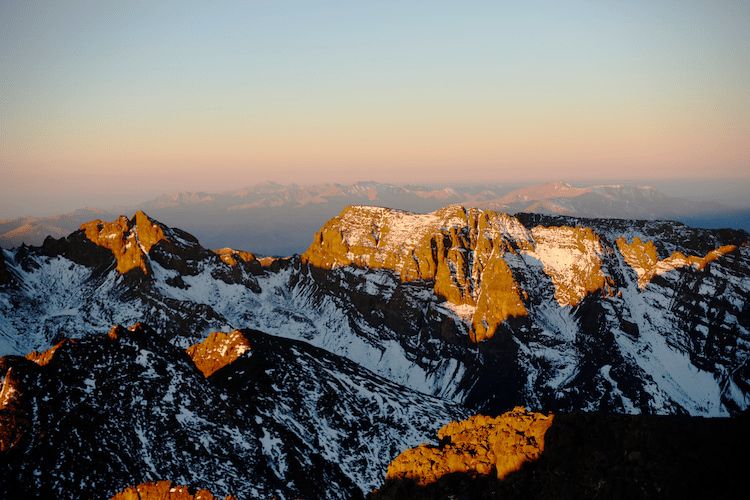
Preparing for the Challenge
You'll need to up your fitness before you go. Find some hills to walk up - the rougher the terrain the better. High altitude acclimatisation isn't really needed for Toubkal given it's only just over 4,000m and altitude is rarely an issue. Kilimanjaro needs careful acclimatisation, which is done by climbing gradually over several days. Climbers should pack essential gear for both - warm layered clothing, waterproof gear and good walking boots. You should also prepare mentally. Get used to going for long walks in all weather and pushing through when you want to stop (so long as it's safe to do so of course).
Summit Night
Climbers should be prepared for a tough summit day on both mountains. As well as a testing climb, it can be cold and windy. Climbers should pack warm clothing and essential gear, head torches and personal first aid kits. Trekking poles take a lot of the pressure off joints and help with balance. Be aware of the possibility of mountain sickness on Kilimanjaro and take steps to avoid it. Planning and preparation is the key to a successful summit attempt. Your guides should take care of that though!
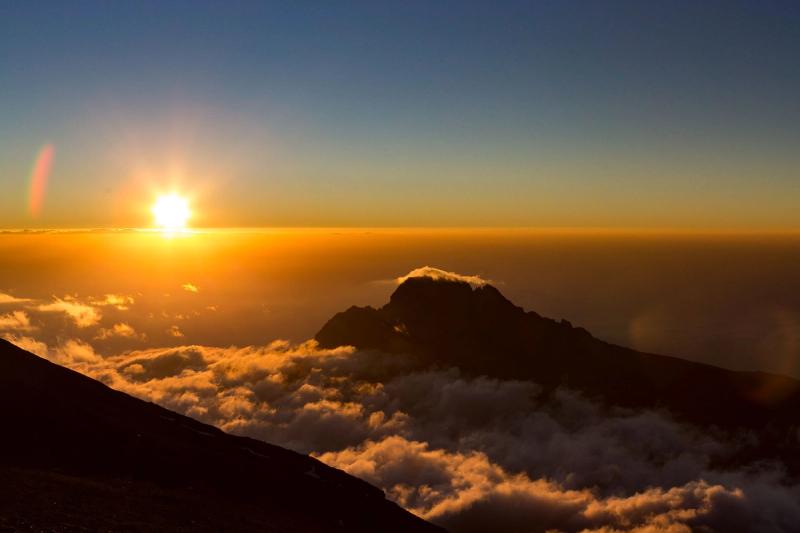
Safety
As with climbing any big peak, there's always a risk of falls, injuries or mountain sickness. It's up to you to take precautions - pack essential gear and arrange appropriate insurance. Better be safe than sorry! Listen to your guide!
You will be climbing in remote areas with limited medical care, so you do need to be aware of this. Guides will have awareness of first aid, but evacuation from the mountain may be needed. Climbers should research and choose a reputable tour operator for their climb.
Summary
Toubkal and Mount Kilimanjaro are both challenges in their own right and both demand a certain respect. Climbing Toubkal is a good option for cutting your teeth in preparation for longer trips and bigger challenges. Mount Kilimanjaro is tougher. Of the two, it's the biggest and the altitude makes it a more serious challenge. Climbers should be prepared for tough terrain, long slogs and the possibility of altitude sickness on Kilimanjaro. It's very rare on Toubkal, but you should still watch for symptoms. With planning and preparation climbers can summit either and have an amazing climbing experience. A climb of Mount Toubkal can be great training for a Kilimanjaro trek. Climb Mount Toubkal or Kilimanjaro with Call to Adventure and we'll handle all the logistics for you - just turn up and trek!
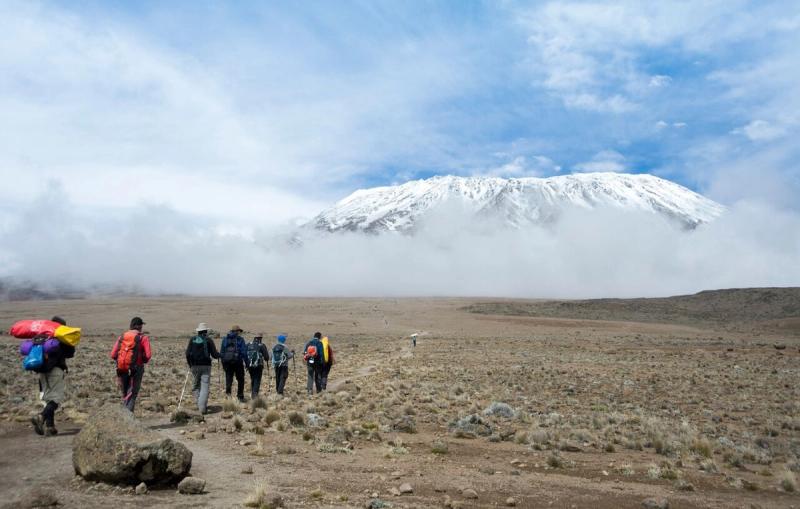
About the Author

Steph
Outdoor and Adventure Writer
Steph isn’t just a writer; she’s an adventurer. With a firm belief in firsthand experience, Steph dives into the world of slow travel, taking long walks, enjoying the serenity, and capturing moments through her camera lens.
![Climb Mount Toubkal Tips From Local Expert [30 Years Experience]](https://cdn.sanity.io/images/f5ovd1ei/production/583602f19db9ccc67b832053ccba8ca25e090833-1660x1067.webp?w=80&h=80&fit=crop&auto=format)

